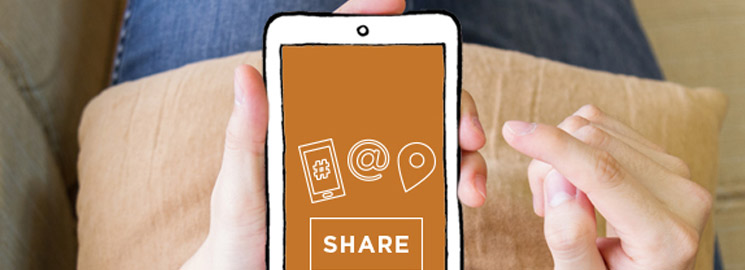A popular song. That hot new TV series. A digital photo of a sunset. The internet provides endless opportunities to access content created and owned by other people, but it’s not all free for the taking. The availability of unauthorized, copyrighted content makes illegal downloading and plagiarizing easy. That doesn’t make it right. When you come across content that you are looking to use, whether that is an image, sound or song, video, text or tweet you need to ask yourself if the content you’re interested in using is posted by the creator or by someone who has permission to share it? There are many artists online who happily share their content for free, but there are also many sites improperly sharing content without permission from the creator. This content could be videos, photography, illustrations, stories, or even essays and when people take this information to use for themselves they could be getting themselves in trouble.
You’ve heard the adage that a picture is worth a thousand words, but when that picture is protected by copyright, the picture is only worth three words: cease and desist. All legal joking aside, it illustrates how protective people are about finding their own content used by other people online without permission. For instance, when doing a standard Google search for images you need to keep in mind that most of the images Google brings back in your search query are not filtered for copyright and so a good rule of thumb is if you’re not sure who owns it you might want to leave it alone.
Other questions should we be asking ourselves if we want to use online content that is not our own?
1.Is it copyright?
Copyright is the claim of legal ownership over an original work. It can be claimed by the creator, or by a company. Often, copyrighted material has a “©” symbol and owner’s name on it, but not always. Many professionally-created artworks are copyrighted, however, so you can assume that a TV show, movie, or photo from the news or other major source is copyrighted. That means you shouldn’t download or share it without permission.
2. Do you have permission to share?
Some content creators allow free sharing by anyone. In these cases, they usually say so. If you want to share a photo or other content created by a friend or stranger online, it is best to ask them permission before downloading and reposting it on your own social media.
3. Have you given credit?
Some content owners want to be credited for their work. They will usually say so, if they do. As well, bloggers and media sometimes use other people’s content as “fair use” in reporting (they always credit the source). Even an idea or joke that is tweeted or posted can have an owner, so the best policy is to always give credit where credit is due.


Leave a Reply